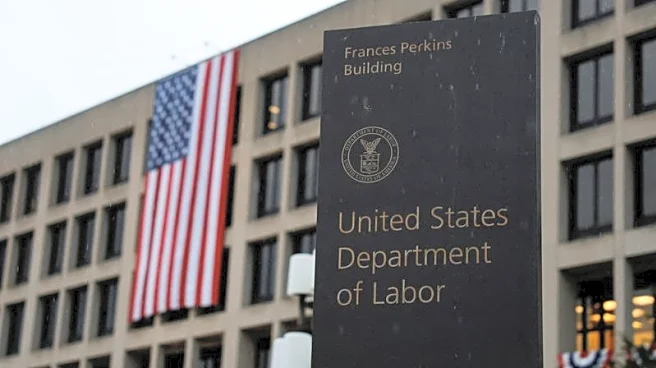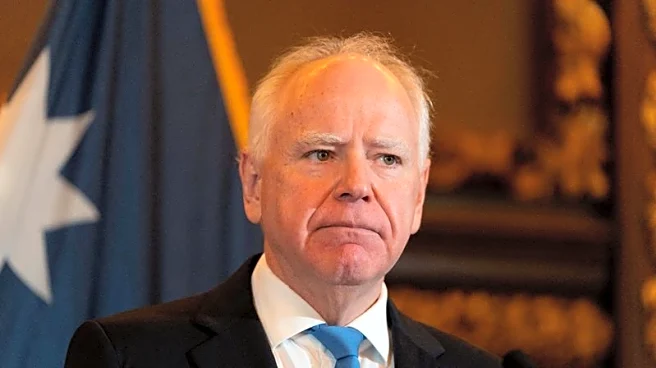What's Happening?
The Trump administration is considering offering unaccompanied migrant children a financial incentive to voluntarily leave the United States. According to a leaked memo from the Department of Health and Human Services, children aged 14 and older in the custody of the Office of Refugee Resettlement may be offered $2,500 to return to their home countries. This initiative is reportedly aimed at supporting reintegration efforts for these children. The Department of Homeland Security is expected to provide the funds for this program, which will initially target 17-year-olds. The proposal has sparked controversy, with critics like Melissa Adamson from the National Center for Youth Law advocating for legal counseling for the children instead.
Why It's Important?
This proposal could significantly impact the lives of unaccompanied migrant children in the U.S., potentially altering their future prospects and safety. The financial incentive to self-deport raises ethical questions about the treatment of vulnerable minors and the responsibilities of the U.S. government towards them. The move may also affect U.S. immigration policy and its perception internationally, as it highlights the ongoing challenges in managing immigration and refugee issues. Stakeholders such as immigration advocates, legal service providers, and policymakers will likely engage in debates over the appropriateness and implications of this approach.
What's Next?
If implemented, the proposal could lead to a series of legal and political challenges. Immigration advocates may seek to block the initiative through legal action, arguing for the rights and protection of unaccompanied minors. The administration's decision could also prompt responses from international human rights organizations and potentially affect diplomatic relations with countries of origin. Monitoring the outcomes of this proposal will be crucial for understanding its impact on immigration policy and the welfare of affected children.
Beyond the Headlines
The proposal raises deeper ethical concerns about the treatment of unaccompanied minors and the role of financial incentives in immigration policy. It may set a precedent for how vulnerable populations are managed in the U.S., influencing future policy decisions. The initiative also highlights the broader issue of child trafficking and the complexities of ensuring the safety and well-being of migrant children in the U.S.










